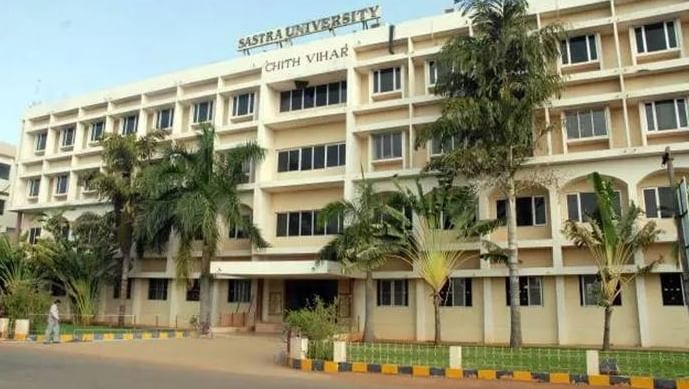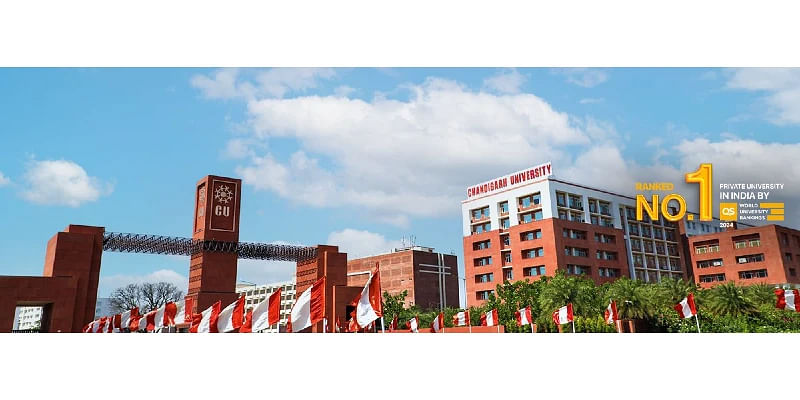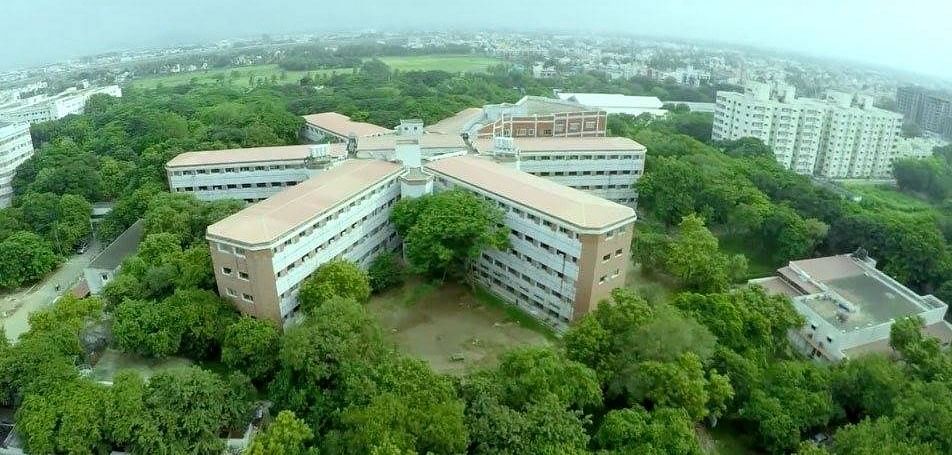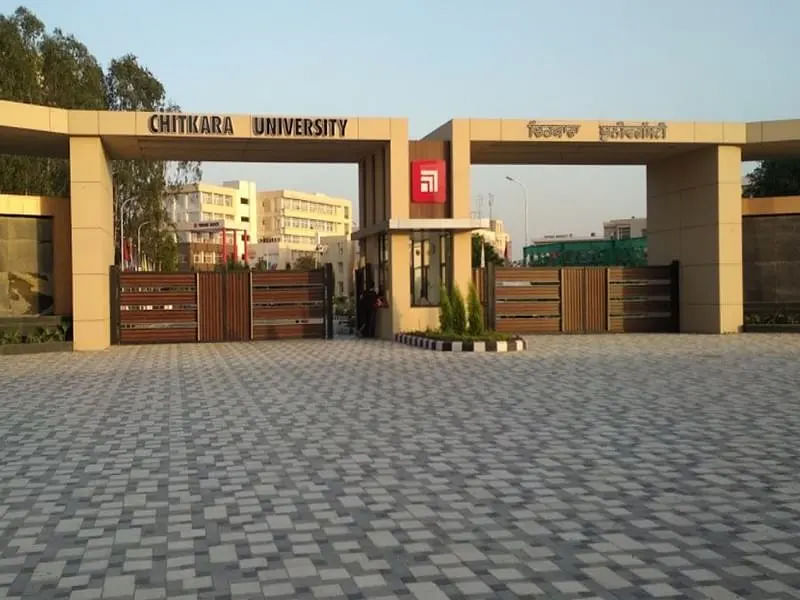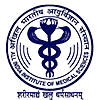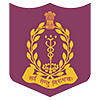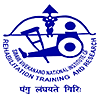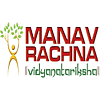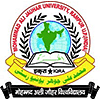B.Optom Syllabus and Subjects

The B Optometry Syllabus provides a comprehensive understanding of several eye disorders along with visual issues, injuries, ocular diseases, and other abnormalities associated with optic globe. B Optometry subjects include General Physiology, Ocular Biochemistry, Pharmacology, Visual Optics, etc.
The B Optometry course provides students with all the essential knowledge and information they need to know to succeed in their careers. B Optometry syllabus and subjects are designed keeping the trends in the industry in mind, enriching the job scope of B Optometry significantly.
Table of Content
Semester Wise Bachelor of Optometry Syllabus
The B Optometry Syllabus is predominantly similar in all colleges, as the colleges want to ensure that students are equipped with all the vital information they require to become good optometry specialists. The semester-wise Bachelor of Optometry Syllabus is given below:
B Optometry Syllabus 1st Year
B Optometry Subjects 1st Year focuses on the elemental aspects of human health. The subjects in the B Optometry syllabus 1st year are given below:
|
Semester I |
Semester II |
|
Geometrical Optics |
Environment & Ecology |
|
General & Ocular Biochemistry |
Ocular Physiology |
|
Anatomy |
Ocular Anatomy |
|
Physiology |
Physical Optics |
Practical Topics in B Optometry Subjects 1st Year
The practical topics in the 1st year B Optometry syllabus are given below:
- Grating-wavelength determination
- The thickness of a thin glass plate
- Single & Double optic lever
- Magnifying power of a simple and a compound microscope
B Optometry Syllabus 2nd Year
The 2nd year B Optometry syllabus is given below:
|
Semester III |
Semester IV |
|
Visual Optics |
Ophthalmic & Optical Instrumentation |
|
Pharmacology |
Clinical Refraction |
|
Ocular Pathology & Microbiology |
Ophthalmic Lens & Dispensing Optics |
|
Lighting & the Eye |
Ocular Diseases |
Practical Subjects in 2nd Year B Optometry Syllabus
The practical topics in the 2nd year B Optometry subjects are given below:
- Measurement of corneal curvature
- Mathematical Models of Hypermetropia
- Effect of lenses in front of the eye
- Direct & Indirect Ophthalmoscopy
B Optometry Syllabus 3rd Year
The subjects in the 3rd year B Optometry Syllabus are given below:
|
Semester V |
Semester VI |
|
Contact Lens |
Systemic Condition & the eye |
|
Binocular Vision & Ocular Motility |
Glaucoma |
|
Dispensing Optics |
Public Health & Community Optometry |
|
Low Vision Aids & Visual Rehabilitation |
Epidemiology and Bio-Statistics |
Practical Subjects in 3rd Year B Optometry Syllabus
The practical topics in the 3rd year B Optom syllabus are given below:
- Optic center marking
- Choice of tests, aids in different pathological conditions
- Photo refraction
- Pupilliometer
B Optometry Subjects
B Optometry subjects cover the theoretical and practical study of several areas of Optometry such as Myopia control, Neuro-optometry, Pediatric optometry, Vision therapy optometry, Ocular Aesthetics, etc. Some of the B Optometry subjects are given below:
Core B Optometry Subjects
Some of the core subjects in the Bachelor of Optometry Syllabus are given below:
- Physical and Geometrical Optics
- General Anatomy and General Physiology
- Optometric Optics
- Ocular Diseases
- Binocular vision
- Low Vision Aids
- Community and Public Health
- Optometric Instruments
- Principles of Lighting
B Optometry subjects in Detail
B Optometry syllabus is dynamic and covers a wide area of study based on eye health, ocular diseases, and other aspects of optometry. A detailed view of the few subjects in the Bachelor of Optometry syllabus is given below:
|
B Optometry Subjects |
Topics Covered |
|
Geometrical Optics |
Determination of the focal length, Refractive index of a transparent liquid, Dual nature- particle & wave nature, Snells’ law |
|
Physical Optics |
Dual nature of light, Huygens’ principle, Diffraction, Polarization & Crystal Optics, Interference in thin films |
|
Lighting & the Eye |
Spectroradiometric curve, Photometric quantities and units, Photometry, Lumen method of lighting design |
|
Ophthalmic & Optical Instrumentation & Procedure |
Ophthalmic lens, Current material, Radiuscope, Retinoscopes, Ophthalmoscopes, Slit lamp Biomicroscope |
|
Binocular Vision & Ocular Motility |
Grades of binocular vision, Dihoptic stimulation, Binocular defects, Eye movements |
|
Applied Optometry & Orthoptics |
Orthoptic Instruments, Motor signs in a squint, Binocular single vision, Amblyopia, Convergence insufficiency |
B Optometry Course Structure
The Bachelor of Optometry Syllabus syllabus is spread across six semesters consisting of theories and practical modules to assist students learn in depth. Seminars, industry visits, project work, and other skill development programs make the curriculum engaging and industry-relevant. The general course structure is as follows:
- VI Semesters
- Core Subjects
- Elective
- Seminar
- (Optional) Internships
B Optometry Teaching Methodology and Techniques
The teaching methods of B Optometry include traditional forms of teaching where students learn about concepts through classroom teaching and practical lab classes. The lab classes help the students use the knowledge they practically gain in classrooms. The general training methods are given below:
- Tutorial Problem Solving exercises
- Evaluation Procedures
- Guest Lecture
- Labaroty Record Note Books
- Research and Development Programs
B Optometry Projects
The syllabus of Optometry includes project work at the end of the sixth semester. The topics for the projects can be chosen based on the electives and preferences. Some of the popular projects under the Optometrist syllabus are given below:
- Comparative Study Of Intraocular Pressure In Emmetropes, Hyperopes, and Myopes.
- Effect Of Caffeine On Intraocular Pressure
- Post-menopause Effect On Tear Production
- Influence Of Presbyopic Add-On Near Phoria
- Relationship Between Body Mass Index and Intraocular Pressure
B Optometry Reference Books
Students must invest in some reference books to gauge a better understanding of B Optometry subjects. The reference books will help students prepare beforehand about all the essentials required for the coursework. Some of the reference books are given below:
|
Books |
Authors |
|
Systems for Ophthalmic Dispensing |
Irvin Borish and Clifford Brooks |
|
Clinical Procedures Involved in Eye Care |
David B.Elliott |
|
Fixing my gaze |
Susan R. Barry |
|
Business Aspects of Optometry |
John G. Classe |


